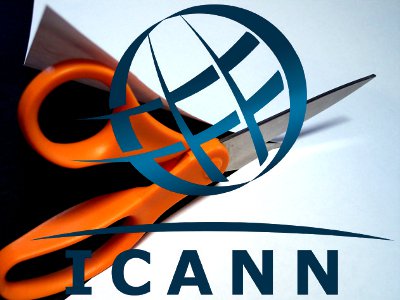U.S. to Cut ICANN Loose
 WASHINGTON – The U.S. government plans to discontinue its control over the Internet Corporation for Assigned Names and Numbers, officials announced Friday, giving the tax-exempt, quasi-governmental organization complete autonomy for the first time since its establishment in September 1998.
WASHINGTON – The U.S. government plans to discontinue its control over the Internet Corporation for Assigned Names and Numbers, officials announced Friday, giving the tax-exempt, quasi-governmental organization complete autonomy for the first time since its establishment in September 1998.
Although the news pleased some international critics and cyber-rights activists — especially after last year’s revelations about the U.S. National Security Agency’s wholesale surveillance of internet activity — not everyone was happy about the change.
Among the chief complaints of those who oppose the move is a concern that without government oversight, the web could plunge into chaos as various political forces jockey for control of “applicable law” in a worldwide forum. Although the details about and a timeline for the transition have yet to be worked out, the U.S. Department of Commerce — which has overseen ICANN’s operation under a contract since Day One — indicated it will not relinquish authority for the agency that manages the system of Web addresses and domain names until an appropriate international oversight mechanism can be installed.
That particular accommodation lit several fires.
“What is the global internet community that Obama wants to turn the internet over to?” former U.S. House of Representatives Speaker Newt Gingrich [R-Ga.] tweeted. “This risks foreign dictatorships defining the internet.”
Steve DelBianco, executive director of NetChoice, a trade group representing Internet businesses, seemed to concur.
“It’s inconceivable that ICANN can be accountable to the whole world,” he told The Washington Post. “That’s the equivalent of being accountable to no one.”
Others called the move “playing politics” and indicated little faith ICANN could be effective, or even fair to all stakeholders, without contractual strings binding its actions.
“This is a purely political bone that the U.S. is throwing,” Garth Bruen, a security fellow at anti-cybercrime advocacy group Digital Citizens Alliance, told the Post. “ICANN has made a lot of mistakes, and ICANN has not really been a good steward [of the internet’s assets].”
For at least the past 10 years, various internet stakeholders have accused ICANN of being a lapdog for wealthy domain traders. Domain-name portfolios can be worth millions of dollars, and power players in the industry that profits from the buying and selling of domain names have been known to exert tremendous pressure on ICANN in attempts to force the agency to approve or deny certain Top Level Domains.
Just ask the adult entertainment industry, which fought a decade-long battle to defeat .xxx, an adults-only domain space ICANN turned down twice before approving it … but only under threat of lawsuits and allegations of under-the-table payoffs.
Since then, ICANN has embarked on a massive expansion to the domain name program, adding thousands of new Top Level Domains that, not accidentally, have added millions of dollars to ICANN’s coffers. The tax-exempt corporation is an economic giant in its own right.
Commerce Department officials and ICANN representatives are expected to meet March 23, during ICANN’s international meeting in Singapore, to begin working out a plan to sever the apron strings. They have about a year to iron out the details before the current contract between the two entities expires. The contract includes a renewal clause, which Commerce representatives have said they will invoke if a transition to autonomy isn’t feasible before the current contract expires.
“We look forward to ICANN convening stakeholders across the global internet community to craft an appropriate transition plan,” U.S. Assistant Secretary for Communications and Information Lawrence E. Strickling noted in a prepared statement. “The timing is now right to start this transition, both because ICANN as an organization has matured and international support continues to grow for the multi-stakeholder model of internet governance.”
In a separate statement, ICANN President Fadi Chehade noted, “Nothing will be done in any way to jeopardize the security and stability of the internet.”









